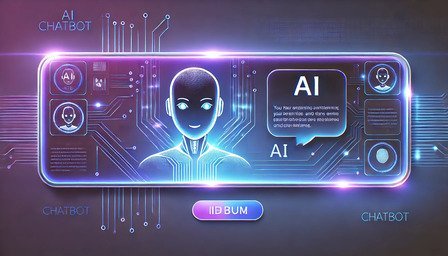Generative AI in Content Creation: Boon or Bane for Writers?
Writers often spend hours brainstorming, researching, and structuring their content. AI-powered tools streamline this process by generating outlines, suggesting topics, and even drafting articles. Consequently, writers can focus on refining ideas rather than spending excessive time on initial drafts.

The rise of generative AI in content creation has sparked an ongoing debate. Some believe it has transformed the industry by making content production more efficient, while others argue it threatens the role of human writers. With AI generating text at an unprecedented pace, the writing profession is experiencing a significant shift. The question remains—does AI assist or replace writers?
The Role of AI in Content Creation
Initially, AI-assisted writing tools were used for simple tasks such as grammar correction and sentence restructuring. However, they have now evolved into advanced systems capable of producing full-fledged articles, marketing copies, and even scripts. These tools analyze patterns in existing content and generate text that mimics human writing.
In comparison to traditional writing methods, AI significantly reduces the time needed for content generation. Many businesses rely on AI to produce blog posts, advertisements, and reports in a matter of minutes. Despite this efficiency, AI-generated content often lacks originality, emotional depth, and nuanced storytelling that human writers bring to the table.
Benefits of Generative AI for Writers
Increased Productivity
Writers often spend hours brainstorming, researching, and structuring their content. AI-powered tools streamline this process by generating outlines, suggesting topics, and even drafting articles. Consequently, writers can focus on refining ideas rather than spending excessive time on initial drafts.
Assistance with Repetitive Tasks
Many industries require standardized content, such as product descriptions, legal documents, and customer service responses. AI automates these repetitive tasks, allowing writers to dedicate their efforts to more creative and strategic projects.
Cost-Effective Content Creation
For businesses with limited budgets, hiring a team of writers may not be feasible. AI provides a cost-effective solution by generating content at scale. Although AI cannot replace human creativity, it offers a practical alternative for organizations seeking efficiency.
Challenges AI Poses for Writers
Lack of Originality and Creativity
Even though AI generates grammatically correct and well-structured content, it struggles with originality. AI models rely on pre-existing data, which limits their ability to produce unique ideas. Writers, on the other hand, contribute creativity, emotions, and experiences that AI simply cannot replicate.
Ethical Concerns
AI-generated content raises ethical questions regarding authorship and plagiarism. Since AI pulls data from various sources, it occasionally produces content that closely resembles existing material. This blurs the line between inspiration and direct copying, leading to concerns about intellectual property rights.
Job Security for Writers
One of the biggest concerns surrounding AI in content creation is its impact on employment. Some fear that AI will replace human writers, reducing job opportunities in the industry. However, while AI can generate content quickly, it lacks the depth and insight that human writers bring to their work.
Finding a Balance Between AI and Human Writers
AI as a Writing Assistant, Not a Replacement
Rather than viewing AI as a threat, many writers are adopting it as a tool to support their work. AI can handle mundane tasks, generate ideas, and improve efficiency while writers focus on adding depth, originality, and human emotion to their content.
Quality Control and Human Oversight
AI-generated content often requires human intervention to refine, fact-check, and personalize the writing. Writers play a crucial role in editing AI drafts to ensure accuracy and maintain a brand’s unique voice.
Ethical and Responsible AI Use
Writers and organizations using AI must prioritize ethical content creation. Transparency in AI-generated work, proper citations, and human oversight can help maintain ethical writing standards.
The Future of AI in Writing
The future of AI in writing depends on how the industry adapts. Writers who incorporate AI into their workflow can benefit from increased efficiency while maintaining their creative edge. AI will continue to evolve, but it is unlikely to fully replace human writers. Instead, it will serve as a powerful tool that complements human creativity.
In particular, platforms such as Rubii AI offer AI-driven solutions that assist content creators without compromising originality. Writers can use such tools to streamline their workflow while ensuring high-quality content.
Conclusion
AI has undeniably changed the landscape of content creation. While it offers numerous benefits in terms of efficiency and productivity, it also presents challenges related to creativity, ethics, and job security. Writers who embrace AI as a tool rather than a replacement can find ways to work alongside it effectively. The future of writing lies in a balance between AI’s capabilities and human ingenuity.
What's Your Reaction?















